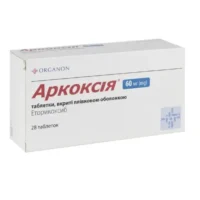Description
Orcerin (Diacerein) Capsules 50 mg
Ingredients:
Each Orcerin capsule contains 50 mg of diacerein as the active ingredient.
Dosage:
The recommended dosage of Orcerin is one 50 mg capsule taken orally once daily with a meal.
Indications:
Orcerin is indicated for the treatment of osteoarthritis to reduce pain and improve joint function.
Contraindications:
Do not use Orcerin if you are allergic to diacerein or have a history of inflammatory bowel disease.
Directions:
Swallow the Orcerin capsule whole with a full glass of water. Do not crush or chew the capsule.
Scientific Evidence:
Diacerein inhibits interleukin-1 beta production, reducing joint inflammation and cartilage degradation in osteoarthritis. Studies show significant pain reduction and improved function in knee osteoarthritis patients.
Additional Information:
- Orcerin may take several weeks to show full effect. Continue as prescribed.
- Common side effects include diarrhea, abdominal pain, and skin rash. Discontinue if severe side effects occur.
Pharmacological Effects:
Diacerein inhibits pro-inflammatory cytokines, reducing inflammation and promoting cartilage repair. It stimulates glycosaminoglycans and collagen production in the cartilage.
Clinical Trials and Comparative Effectiveness:
Diacerein is as effective as celecoxib in reducing pain and improving joint function in knee osteoarthritis. It provides sustained pain relief and functional improvement in hip osteoarthritis with fewer gastrointestinal side effects compared to NSAIDs.





